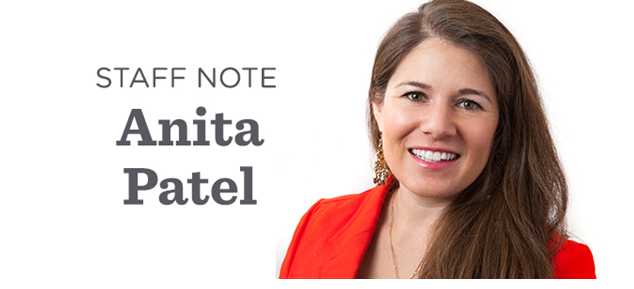
Staff Note: Addressing wealth gaps in our region

By Anita Patel, vice president of grantmaking
We believe that working to close systemic wealth gaps across racial and ethnic communities is one of the most important and highest impact things we can do.
Access to wealth helps people take advantage of opportunities — like going to college, buying a house and starting a business – and manage through hardships. It’s a major factor that affects life opportunities and outcomes. Wealth is generational. A family’s wealth today is linked to the wealth of preceding generations. This is why past discrimination and injustice still has so much impact today.
Back in March 2021, we committed $50 million — as part of our regular grantmaking — to help address wealth gaps that significantly affect racial and ethnic communities. And we thought it would take us 5 years to do it. Instead, we have committed $50 million within two years – $51 million to be exact – and we are still going.
Our Approach
We intentionally applied this $50 million to our regular grantmaking rather than create another program or another layer for people to access funding. We just looked for great opportunities that fit our existing program criteria and addressed wealth gaps across racial and ethnic communities.
This was a complementary commitment to the $100 million we raised through social impact bonds to seed two community trust funds — a reparative action to provide grants directly to Black and Native individuals for wealth-building activities, such as education, business creation and homeownership.
Learn more about what reparative action means to us
How the funds are being used
To mark this moment, we want to shine a light on the incredible work of some of the organizations that are using that $51 million to build wealth within their communities.
- Family Housing Fund is enabling first-time home buyers from BIPOC communities to become owner-occupant landlords of 2 and 4-unit properties in Saint Paul and several inner-ring suburbs.
- Rebuild and Heal MN is addressing past disinvestment in immigrant business owners in Minnesota by providing access to financial resources and technical assistance. It is a collaborative that includes the Latino Economic Development Center, African Economic Development Solutions, Council on American-Islamic Relations – MN Chapter and African Development Center.
- Tanka Fund is developing and testing a new approach to grow the profitability and supply of grass-fed, Native-raised beef and buffalo production to expand economic opportunity and promote sustainable land management.
- Black Hills Area Community Foundation is developing and spreading a new private-public model for affordable housing in Rapid City, SD.
- Tending the Soil is a collaborative effort of five organizations establishing and testing a worker-driven social responsibility model in the building trades industry to provide worker protections and opportunities.
- College Bound Saint Paul is scaling a college savings account program, created by the City of St. Paul. It is unique in the country because it includes every child born in the city of St. Paul, MN.
- North Dakota Native Tourism Alliance is creating a new model of promoting Native-owned tourism, in partnership with the State of North Dakota, to ensure tribes benefit economically from tourism and have control over their own stories.
- Shared Capital Cooperative is developing and testing a commons-based approach to acquire and steward a network of farms across Minnesota and open the door for more BIPOC farmers and those underrepresented in farm ownership to sustainably farm.
What’s next
When we originally shared our commitment to this work, we heard from many of you. Some of you told us you were inspired by our action, and others shared skepticism that we, or any foundation, would follow through on such a commitment.
We’re glad that we can share with you today that we did meet that commitment, and equally important is that we know the work doesn’t stop there. We can’t erase wealth gaps with $51 million – and we won’t be complacent in the face of continued need.
We will keep seeking opportunities to address wealth gaps and expect to keep adding to this total in 2023 and beyond.
If you have an idea that directly supports generational wealth building in communities that have been affected by past discrimination and injustice, we’d love to talk with you. Contact us to schedule a time to chat or send us an email.